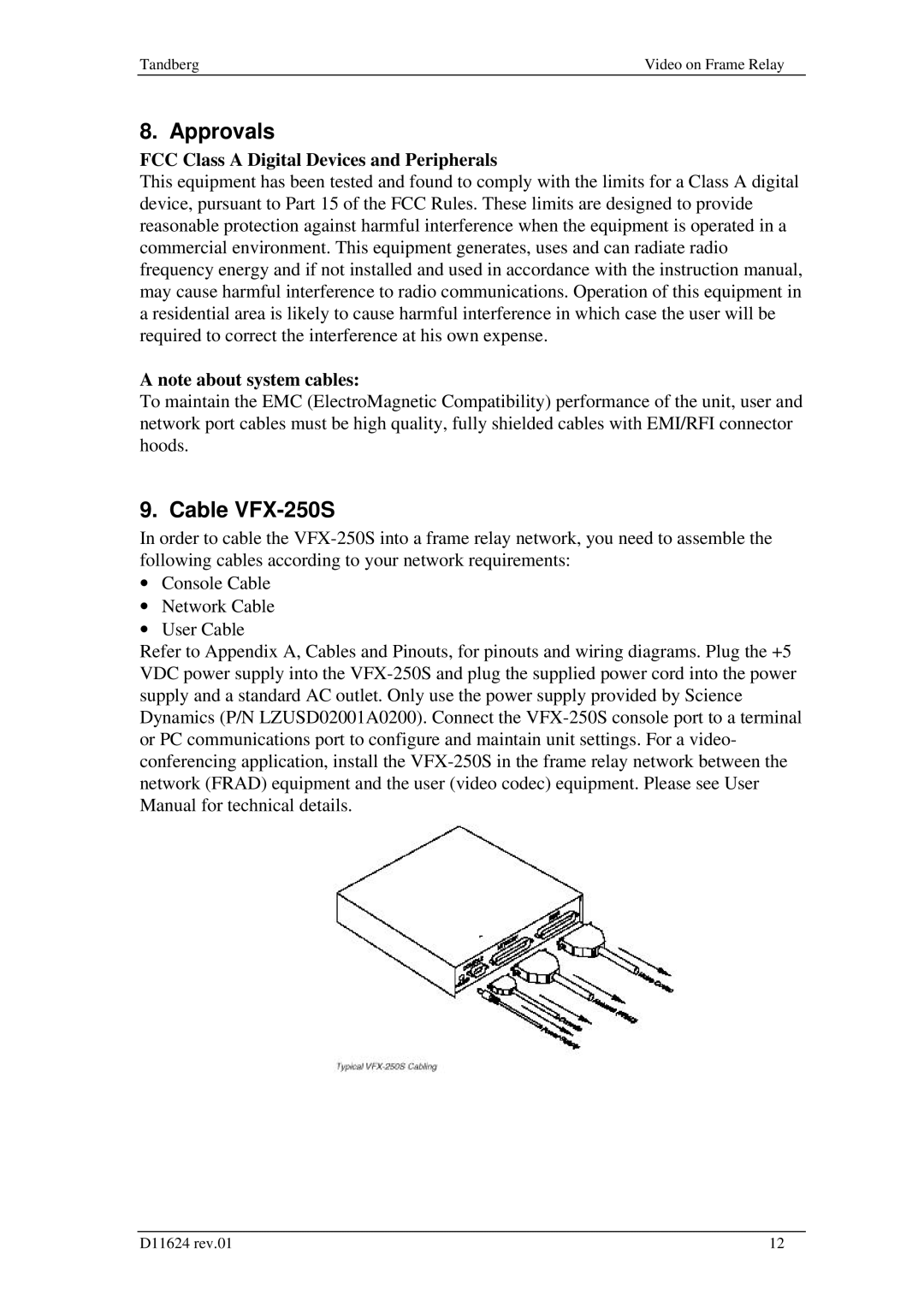
Tandberg | Video on Frame Relay |
8. Approvals
FCC Class A Digital Devices and Peripherals
This equipment has been tested and found to comply with the limits for a Class A digital device, pursuant to Part 15 of the FCC Rules. These limits are designed to provide reasonable protection against harmful interference when the equipment is operated in a commercial environment. This equipment generates, uses and can radiate radio frequency energy and if not installed and used in accordance with the instruction manual, may cause harmful interference to radio communications. Operation of this equipment in a residential area is likely to cause harmful interference in which case the user will be required to correct the interference at his own expense.
A note about system cables:
To maintain the EMC (ElectroMagnetic Compatibility) performance of the unit, user and network port cables must be high quality, fully shielded cables with EMI/RFI connector hoods.
9. Cable VFX-250S
In order to cable the
∙Console Cable
∙Network Cable
∙User Cable
Refer to Appendix A, Cables and Pinouts, for pinouts and wiring diagrams. Plug the +5 VDC power supply into the
D11624 rev.01 | 12 |
